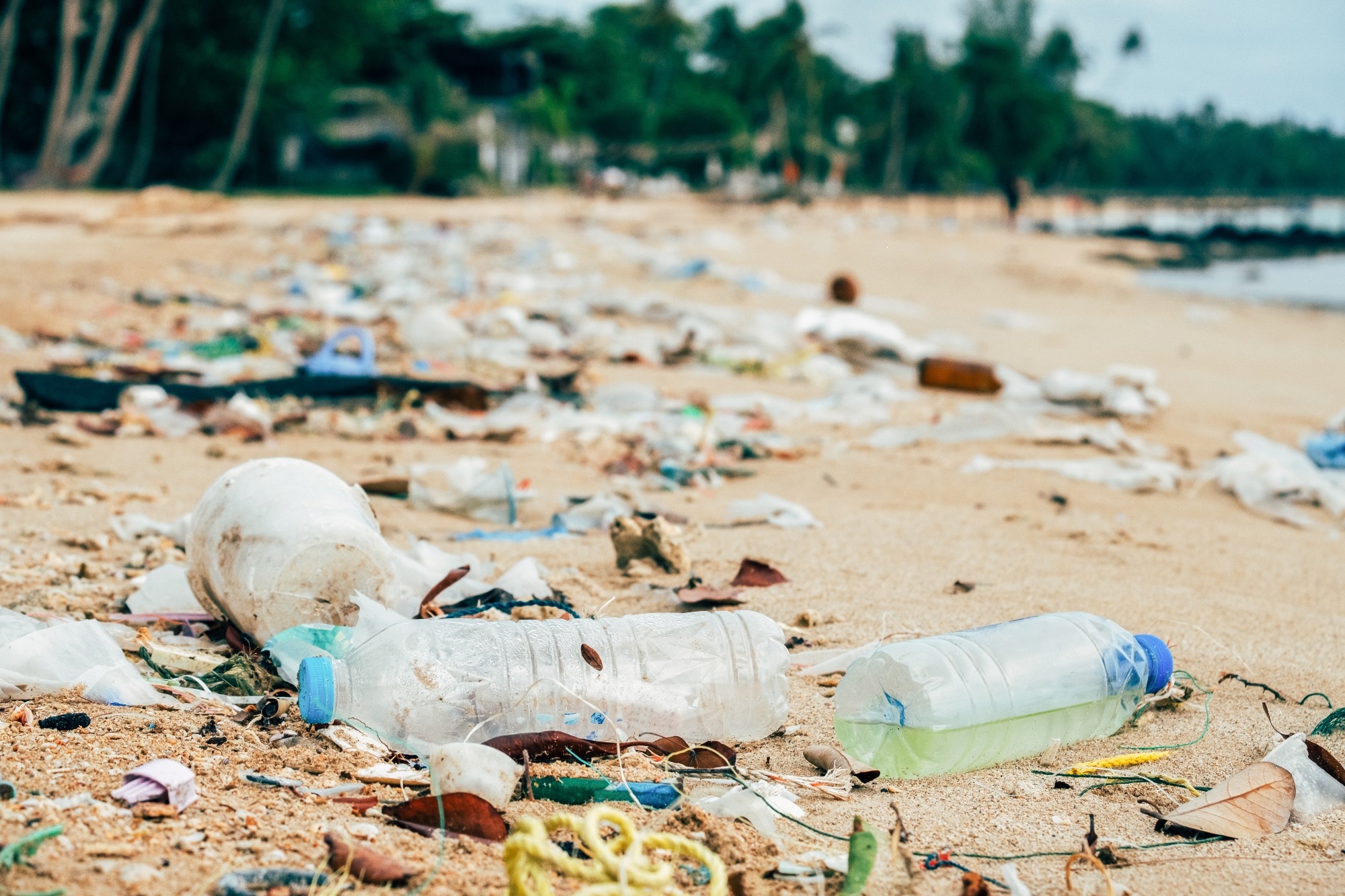Plastic overproduction, overuse, and improper disposal have created a massive environmental problem, with plastics clogging waterways, polluting natural habitats, and threatening multiple species with premature death. This has led researchers to investigate novel methods that can increase the breakdown or recycling of plastics in an ecologically sensitive manner.
 Study: Discovery of plastic-degrading microbial strains isolated from the alpine and Arctic terrestrial plastisphere. Image Credit: Iurii Stepanov / Shutterstock.com
Study: Discovery of plastic-degrading microbial strains isolated from the alpine and Arctic terrestrial plastisphere. Image Credit: Iurii Stepanov / Shutterstock.com
Introduction
Well over 360 megatons of plastic are currently produced each year. Polyethylene (PE), the most commonly used plastic, persists in the environment for decades. The use of such plastics in disposable items significantly contributes to the plastic waste problem, along with various challenges associated with plastic waste segregation and recycling.
Plastics can reach remote locations on Earth as a result of tourism, winds, and ocean currents. However, while scientists have investigated mechanical and chemical approaches to break down plastics, these methodologies are associated with certain limitations that prohibit their widespread application.
Microbial enzymes could also be used for plastic degradation to short-chain compounds, dimers, and monomers. This occurs through a biofilm on the surface of the plastic that is formed by microbial colonies. The digested plastic segments are further broken down within the microbial cells to yield water and carbon dioxide or synthesize other useful compounds.
Plastics-associated microbial clusters are selected for their ability to utilize plastics as carbon-energy sources in poor soil. Such pathways could be selected using the appropriate enzymes rather than the whole microbe, thereby leading to the production of plastic monomers that can be reused as new plastics. This would lead to a circular plastic economy.
While researchers have repeatedly demonstrated that plastics can be degraded and utilized by microbes, others have shown that this occurs at useful rates only under optimal conditions, which are often unavailable in nature. For example, the Earth’s surface is typically much colder than the laboratory situations in which plastic degradation occurs.
Cold-adapted microbes and their enzymes could bridge this gap and help with the industrial recycling of plastics without the need for heat, thus saving both energy and costs. These enzymes are often broader in their spectrum of action than those that are active at more moderate temperature ranges.
Using cold-adapted enzymes also reduces the likelihood of unwanted reactions and increases the purity of the final product. However, microbes that can break down biodegradable plastics at temperatures below 20°C have not been studied.
About the study
In the current study, scientists isolated 34 microbes capable of surviving and thriving at cold temperatures. This was achieved using plastics obtained from Arctic soil, as well as from alpine and Arctic soils incubated at cold temperatures in the laboratory.
The experiments were designed to explore the ability of these bacteria to break down PE, as well as newer biodegradable plastics, including polyester-polyurethane (PUR; Impranil®), ecovio® and BI-OPL, two commercial plastic films made of polybutylene adipate-co-terephthalate (PBAT) and polylactic acid (PLA), pure PBAT, and pure PLA.
What did the study show?
Nineteen of the microbial strains degraded PUR dispersed in the medium. Twelve strains were capable of breaking down ecovio®, whereas five strains degraded BI-OPL. PE continued to be resistant to microbial degradation.
Using nuclear magnetic resonance (NMR), the scientists also confirmed that the biodegradable plastic films lost both PBAT and PLA components by the activity of eight and seven strains, respectively.
With the help of a probe that produced fluorescence when PBAT was broken down into its monomers, multiple strains were found to exhibit PBAT-degrading activity.
Neodevriesia and Lachnellula strains effectively degraded all biodegradable plastics tested in this study. Notably, biodegradation varied with the culture medium, as each strain had specific optimal conditions.
Organisms from the phyla Actinobacteria, Proteobacteria, and Ascomycota were the only strains that were found in the plastisphere in cold regions of the Earth. In particular, Ascomycota appears to be particularly effective at PUR breakdown at low temperatures.
What are the implications?
In the present study, plastic degradation took two to four months with the tested strains, with less than half of the product mass lost by the end of the study. This could be due to incomplete degradation, resistance to breakdown by certain components of the plastic film, or certain characteristics of the material itself, such as crystalline properties that do not favor degradation.
Many other reasons could be adduced, including acidification of the culture medium or the deficiency of essential nutrients at later time points in culture growth.
The isolated cold-adapted microorganisms are not only valuable for plastic degradation in the environment, but could also prove useful for recycling or upcycling by producing plastic-degrading enzymes active at lower temperatures.”
The discovery of new microbial strains that can break down biodegradable plastic films, as well as PUR, could support the widespread use of such plastics, making them a key component of a circular plastic economy.
Journal reference:
- Ruthi, J., Cerri, M., Brunner, I., et al. (2023). Discovery of plastic-degrading microbial strains isolated from the alpine and Arctic terrestrial plastisphere. Frontiers in Microbiology. doi: doi:10.3389/fmicb.2023.1178474.